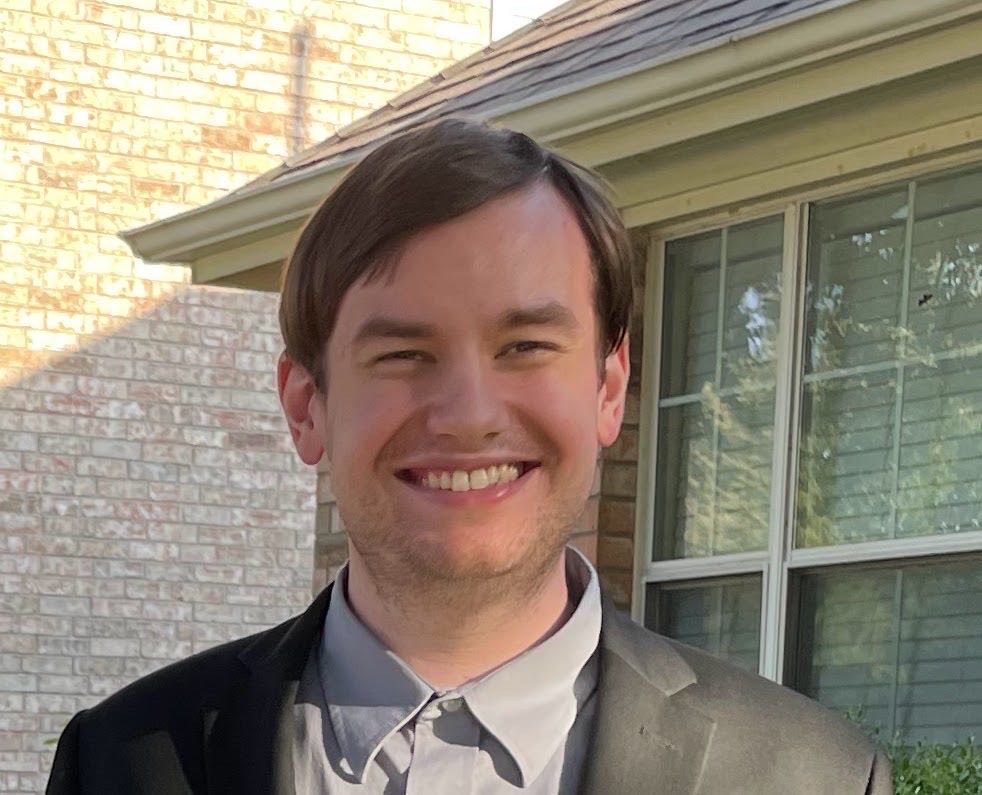Shakespeare Dallas invites DFW audiences to lend them their ears for “Julius Caesar”
The Collin-Denton Spotlighter talks with Shakespeare Dallas’ Julius Caesar, Brutus and Mark Antony about the company’s ongoing production of the iconic play.
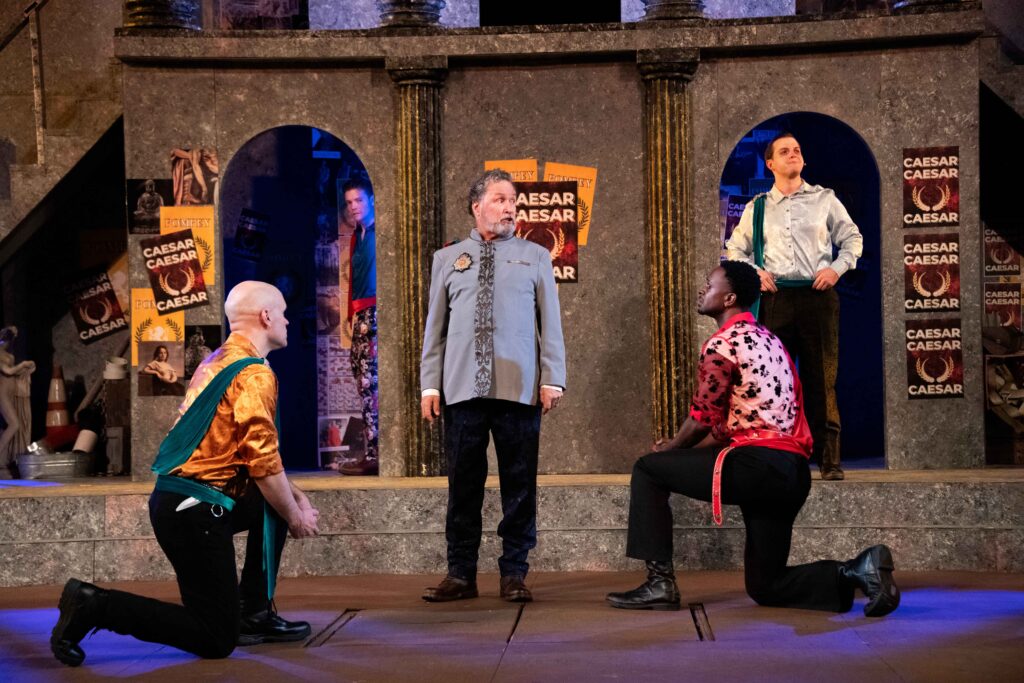
T.A. Taylor is no stranger to the Shakespeare Dallas stage. The actor has starred as Richard III, King Lear, Cymbeline and many other iconic characters for the company at the Samuell-Grand Amphitheater. Now, Taylor’s taking on a role that finds his familiarity with the Shakespeare Dallas audience used to create divisions between himself and his fellow actors on stage when he stars as Julius Caesar in the company’s latest production.
Directed by Katie Ibrahim, “Julius Caesar” runs through October 13. One of The Bard’s classic works, the play looks at the infamous assassination of Julius Caesar on The Ides of March and the personal and political aftermaths that follow. The Shakespeare Dallas production is set in a post-apocalyptic future of sorts, with plenty of dramatic spectacle throughout. “This is an exciting play. It’s highly dramatic. It’s going to have impactful music, lights, action, all of this going on,” Taylor says.
Taylor describes how his decades of experience performing in front of Shakespeare Dallas audiences, combined with a generational gap between himself and the rest of the cast, draws out some of the play’s themes and tensions. “There is a very obvious generational difference on our stage,” Taylor says. “The oldest person in our cast, other than me, is the age of my youngest child.”
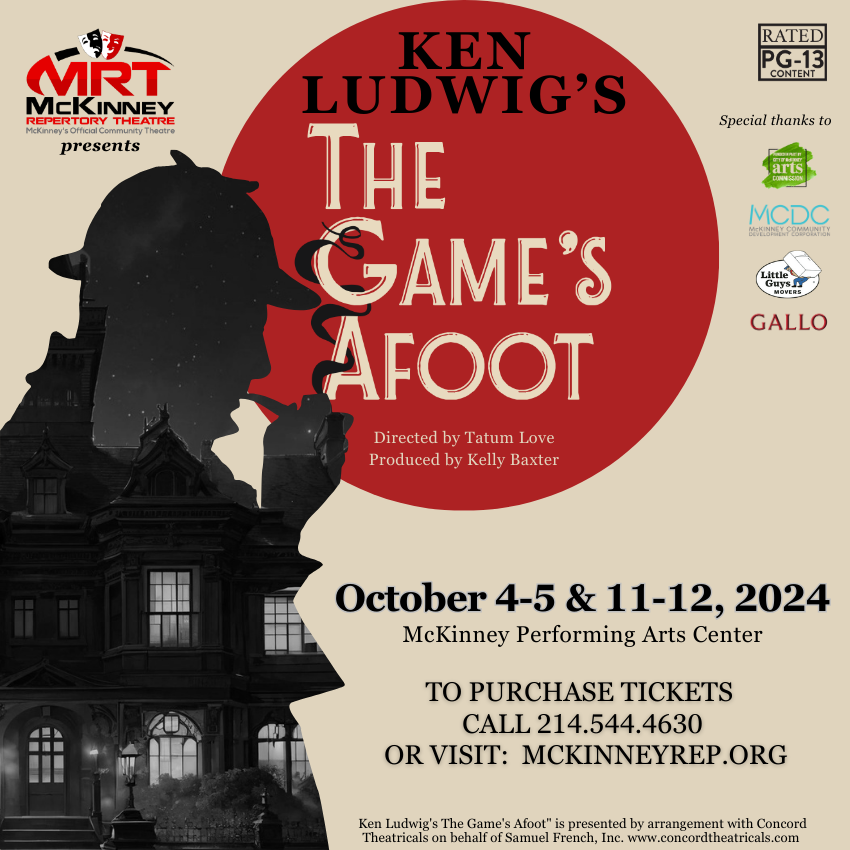
He says those aspects help portray the political and social divides between Caesar and those plotting against him as well as the “patriarchal, father-type relationship” Caesar has with Brutus, Decius and Mark Antony. He explains the historical context of Caesar promoting those around him he favored, even when they went against his wishes, and how that contributed to the situation the play finds him in. “He’s left his enemies around him, and I think there’s an arrogance because of his success,” Taylor says, explaining that he views the conspirators as not motivated by who Caesar is “but because of what he might be.”
Taylor’s co-stars Caleb Mosley and Kat Lozano see their character’s unique relationships with Caesar come to a head in some of the play’s most famous scenes. As Brutus, Mosley delivers the final blow in the assassination as Caesar utters the famous line “Et tu, Brute?” with his dying breaths. It’s a moment Mosely feels represents the culmination of a deep struggle within his character, one that he and Ibrahim have developed so audiences see Brutus as more than simply the “backstabbing friend.”
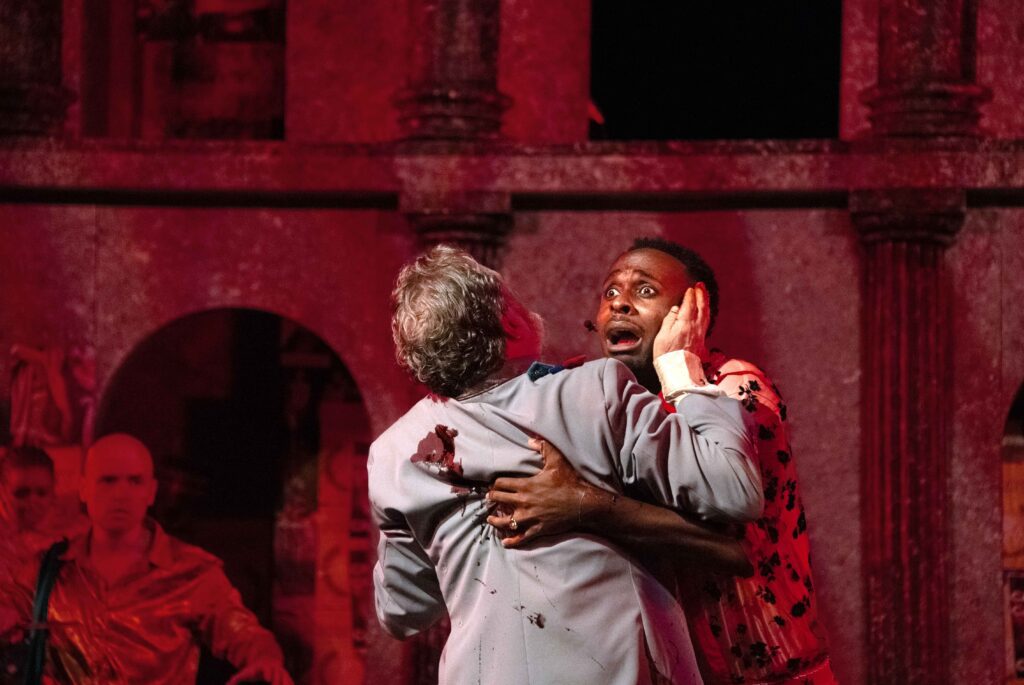
From the show’s onset, Mosley says Brutus feels troubled by the cheering crowds for Caesar. It’s a representation of something Brutus’ ancestors had fought against. “I think that’s one of the most beautiful things about Brutus that I love is how much he cares about where he comes from and about his ancestors,” Mosley says. “Honestly, as a Black actor, I connect to that so much because it’s such a historically Black thing to be so connected to your ancestors and know where you come from.”
Mosley says the appeals to Brutus’ lineage help sway him to join the conspirators, despite his personal relationship with Caesar. “I think it’s so evident because of the direction that we’re going with this play and the direction me and Katie are going with Brutus that this isn’t just a vile, backstabbing and betraying thing that he did,” Mosley says of Brutus.
He views Ibrahim’s approach to the show’s message as investigating “what questions the play is asking” rather than instructing the audience on a particular message. He says the Shakespeare Dallas production of “Julius Caesar” “comes from a place of having fun in the rehearsal rooms and creating a show that’s incredibly entertaining while also still keeping the integrity of what Shakespeare wrote.”
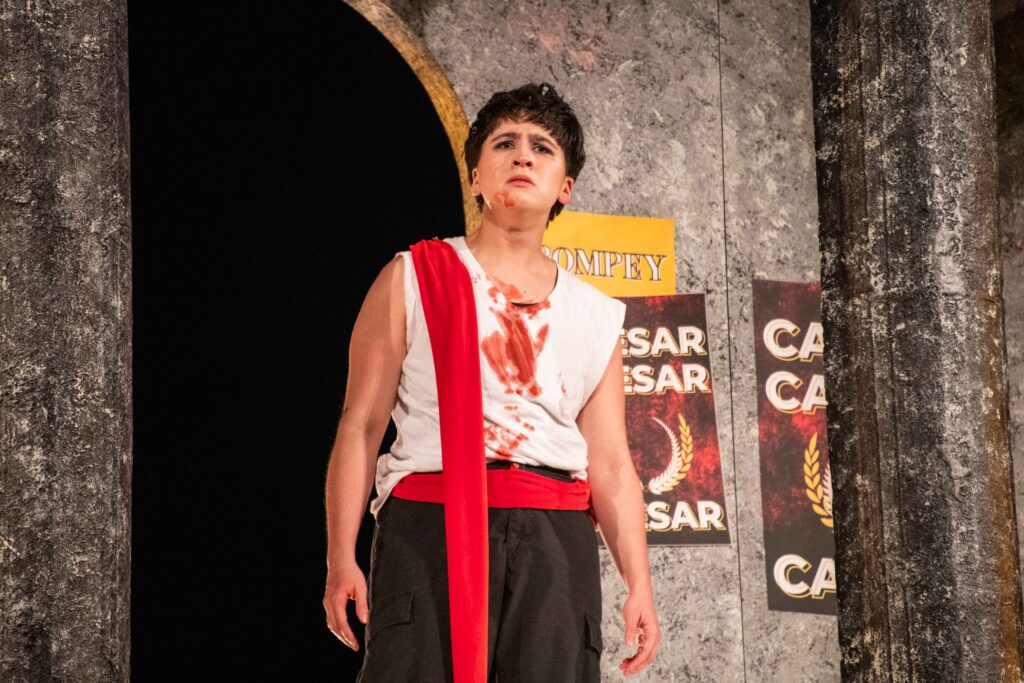
Similar to Mosley, Kat Lozano’s role as Mark Antony includes the famous “Friends, Romans, countrymen, lend me your ears” speech that hinges on their character’s relationship with Caesar. “My Antony, at his core, is loyal,” Lozano says. “I think he starts out from a place of just intense loyalty for his country and for Caesar, but I do think he gets a little taste of power, and that starts getting to his head.”
Lozano also worked with Ibrahim to develop the role of Mark Antony through their own perspective. “I’ve had a lot of fun exploring Antony and kind of coming at it through a genderqueer lens,” Lozano, who’s genderqueer says. They add that they didn’t want to approach their performance as necessarily playing the role in drag. “I really want to embody this character as a man, and Katie (Ibrahim) has been great about giving me the space to explore with that.”
Lozano says exploring the complexities of the roles and the decisions each character makes have been “really fun to play with.” “Also, the cast jokes that Antony has just become like the frat daddy of the cast, so that is the energy I am serving, and we love it,” Lozano says with a laugh.
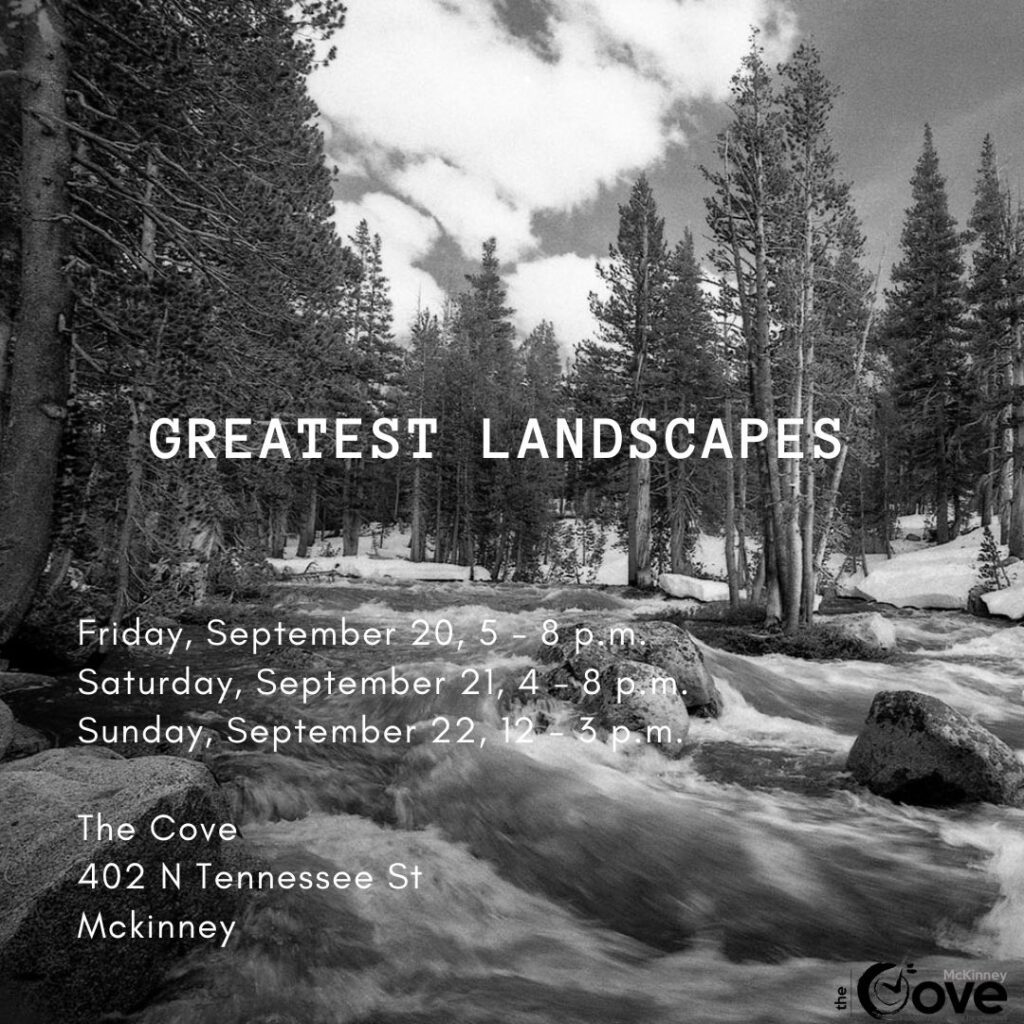
Despite the complexities of the different characters’ motivations, each actor sees the role of the everyday people of Rome as perhaps the most crucial within the show. Lozano says Ibrahim has “found intrigue in the people outside of powerful positions.” “These are the people that are actually going to be affected the most by the decisions that the people in power make, and I feel like she’s done a really good job of speaking to that in our version,” Lozano says. It’s a sentiment echoed by Taylor and Mosley as each of their characters becomes heavily influenced by the public.
As far as the theatergoing public is concerned, the actors hope attendees feel entertained by the production while also contemplating some of the deeper messaging throughout the show and how it reflects on ourselves and our world. “I think it’s going to leave a lot of people thinking…but also, at the end of the day, I just hope they have fun,” Lozano says.
The Shakespeare Dallas production of “Julius Caesar” runs through October 13 at the Samuell-Grand Amphitheater. For more information, including how to purchase tickets, visit https://www.shakespearedallas.org/.
These interviews were edited for clarity.

